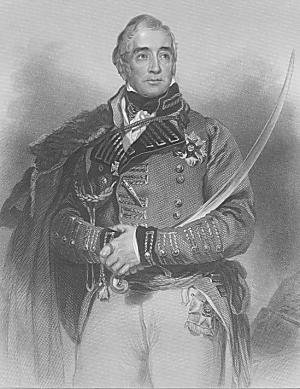معركة بارّوسا
| معركة بارّوسا | |||||||
|---|---|---|---|---|---|---|---|
| جزء من حرب شبه الجزيرة الأيبيرية | |||||||
 Map of the environs of Cádiz (c. 1813) | |||||||
| |||||||
| المتحاربون | |||||||
| القادة والزعماء | |||||||
| القوى | |||||||
|
| ||||||
| الضحايا والخسائر | |||||||
|
| ||||||
معركة بارّوسا 1811 - حرب شبه الجزيرة الأيبيرية: قوة فرنسية بقيادة المارشال ڤيكتور يتم دحرها أثناء محاولتها منع جيش إنگليزي-إسپاني-پرتغالي من رفع حصار كاديز في معركة بارّوسا.
Cádiz had been invested by the French in early 1810, leaving it accessible from the sea, but in March of the following year a reduction in the besieging army gave its garrison of Anglo-Spanish troops an opportunity to lift the siege. A large Allied strike-force was shipped south from Cádiz to Tarifa, and moved to engage the siege lines from the rear. The French, under the command of Marshal Victor, were aware of the Allied movement and redeployed to prepare a trap. Victor placed one division on the road to Cádiz, blocking the Allied line of march, while his two remaining divisions fell on the single Anglo-Portuguese rearguard division under the command of Sir Thomas Graham.
Following a fierce battle on two fronts, the British succeeded in routing the attacking French forces. A lack of support from the larger Spanish contingent prevented an absolute victory, and the French were able to regroup and reoccupy their siege lines. Graham's tactical victory proved to have little strategic effect on the continuing war, to the extent that Victor was able to claim the battle as a French victory since the siege remained in force until finally being lifted on 24 August 1812.
. . . . . . . . . . . . . . . . . . . . . . . . . . . . . . . . . . . . . . . . . . . . . . . . . . . . . . . . . . . . . . . . . . . . . . . . . . . . . . . . . . . . . . . . . . . . . . . . . . . . . . . . . . . . . . . . . . . . . . . . . . . . . . . . . . . . . . . . . . . . . . . . . . . . . . . . . . . . . . . . . . . . . . . .
مقدمة
 مقالة مفصلة: حصار قادس
مقالة مفصلة: حصار قادس
التمهيد للمعركة

المعركة
الهجوم الفرنسي
استجابة جراهام
Barrosa Ridge
Leval's advance
التراجع الفرنسي
العواقب
في الخيال
المصادر
هوامش توضيحية
Citations
قائمة المراجع
- Esdaile, Charles (2002), The Peninsular War, Penguin Books (published 2003), ISBN 0-14-027370-0;
- Fletcher, Ian (1999), Barrosa, www.ifbt.co.uk, Archived from the original on 2007-08-14, http://web.archive.org/web/20070814150223/http://www.ifbt.co.uk/barrosa.htm, retrieved on 2007-09-03;
- Fortescue, Sir John (1917), A History of the British Army, VIII, Macmillan, http://www.archive.org/details/historyofbritish08fortuoft, retrieved on 2007-09-13;
- Gates, David (1986), The Spanish Ulcer: A History of the Peninsular War, Pimlico (published 2002), ISBN 978-0-7126-9730-9;
- Glover, Michael (1974), The Peninsular War 1807–1814: A Concise Military History, Penguin Classic Military History (published 2001), ISBN 978-0-14-139041-3;
- Haythornthwaite, Philip (2004), Brassey's Almanac: The Peninsular War; The Complete Companion to the Iberian Campaigns, 1807–14, Chrysalis Books Group, ISBN 978-1-85753-329-3;
- Jackson, Andrew (2001), The Battle of Barrosa, 5th March 1811, www.peninsularwar.org, http://www.peninsularwar.org/barrosa.htm, retrieved on 2007-09-03;
- Muzás, Luis (2005), Trophies Taken by the British from the Napoleonic Army during the War of Spanish Independence (Peninsular War) 1808–1814, The Napoleon Series, http://www.napoleon-series.org/military/battles/c_capturedflags.html, retrieved on 2007-09-08;
- Oman, Sir Charles (1911), A History of the Peninsular War: Volume IV, December 1810 to December 1811, Greenhill Books (published 2004), ISBN 978-1-85367-618-5;
- Paget, Julian (1990), Wellington's Peninsular War; Battles And Battlefields, Pen & Sword Military (published 2005), ISBN 978-1-84415-290-2;
- Parkinson, Roger (1973), The Peninsular War, Wordsworth Editions (published 2000), ISBN 978-1-84022-228-9;
- Torrens, H (9 November 1811), "Horse-Guards Memorandum", London Gazette (16539): 2, http://www.london-gazette.co.uk/issues/16539/pages/2166, retrieved on 2009-04-21;
- Weller, Jac (1962), Wellington in the Peninsula, Nicholas Vane.

